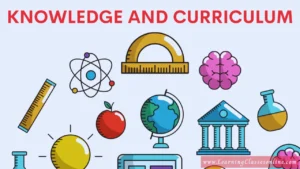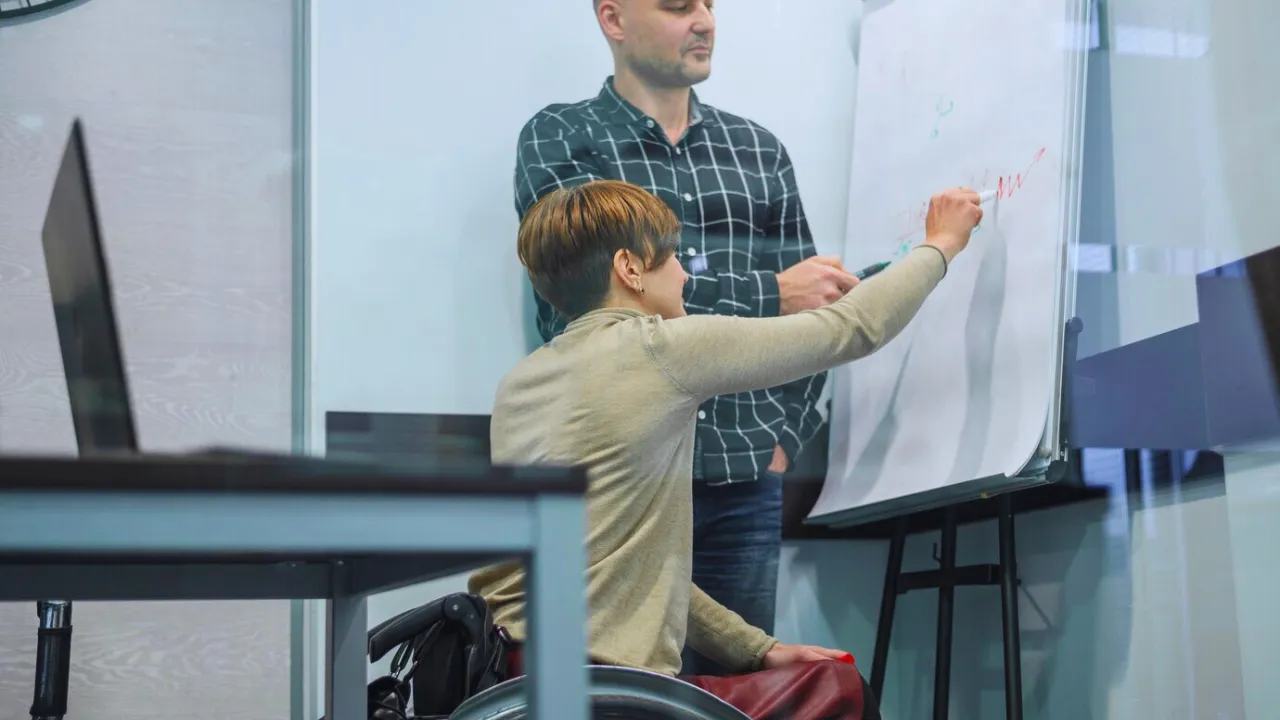In today’s ever-evolving educational space, meeting the unique learning needs of every child is not just a goal—it’s a necessity. The B Ed Special Education program is designed specifically to train future educators in addressing the academic, social, and emotional needs of students with disabilities. This includes those with autism spectrum disorders, hearing impairments, visual challenges, intellectual disabilities, and more. By equipping teachers with techniques like individualized education plans (IEPs), adaptive teaching methods, and behavioral interventions, the course helps ensure that no student is left behind. These skills go far beyond what standard teacher training offers.
With increased awareness around inclusive education, the demand for special educators has seen a steady rise. A B Ed in Special Education opens the door to meaningful teaching careers that directly impact lives. It’s a dedication to educational equality and empowerment rather than merely a credential. Whether you aim to work in mainstream schools, special institutions, or as an education consultant, this course lays the foundation for a purposeful career.
Comparative Synopsis: B.Ed General vs. B.Ed. Special Education
While B Ed General focuses on standard pedagogy for mainstream classrooms, B Ed Special Education emphasizes teaching methods for students with disabilities. The latter includes specialized training, inclusive strategies, and disability-specific subjects, preparing educators for diverse learning environments.
| Feature | B Ed General Education | B Ed Special Education |
| Focus | Teaching the general curriculum | Teaching students with disabilities |
| Target Group | Mainstream students | Special needs students |
| Core Subjects | Pedagogy, Psychology, etc. | Inclusive Education, Disability Studies, etc. |
| Internship Settings | Regular schools | Inclusive and special schools |
| Career Scope | School Teacher, Academic Coach | Special Educator, Rehab Specialist |
Core Subjects Covered in the B Ed Special Education Curriculum

The B Ed Special Education curriculum is designed to blend theoretical knowledge with practical skills to prepare teachers for inclusive classrooms. Core subjects include Foundations of Education, Educational Psychology, and Introduction to Disabilities, offering into how children and what challenges they may face. Students also study Inclusive Education Practices, Curriculum Planning, and Assistive Technology in Special Education, which are crucial for adapting lessons to varied needs.
Courses on Behavior Modification Techniques, Assessment and Evaluation in Special Education, and Teaching Strategies for Specific Disabilities are also available. eyexconcom Practical components like internships, case studies, and hands-on training further strengthen real-world readiness. The curriculum often varies slightly depending on the specialization, such as visual impairment, hearing impairment, autism, or intellectual disabilities, but it remains focused on both academic and social development.
Eligibility Criteria and Admission Process
To enroll in a B Ed Special Education program, candidates typically need a bachelor’s degree in any stream from a recognized university with at least 50% marks. Reserved categories may be exempt from certain institutions’ rules. Admission is usually based on entrance exams conducted by universities or education boards, followed by counseling or interviews. Certain colleges may also consider merit-based selection depending on their policies.
Specializations Within B Ed Special Education
The B Ed Special Education program offers targeted specialization areas, enabling aspiring educators to focus on specific types of disabilities. Common specializations include Hearing Impairment, Visual Impairment, Autism Spectrum Disorder, Intellectual and Developmental Disabilities, and Learning Disabilities.
| Specialization Type | Description |
| Visual Impairment | Teaching methods and tools for visually challenged students |
| Hearing Impairment | Focused on communication techniques and auditory training |
| Learning Disabilities | addressing learning challenges like dyslexia |
| Intellectual Disabilities | Strategies to educate students with cognitive challenges |
| Autism Spectrum Disorder | Behavior analysis and adaptive education planning |
Scope and Career Opportunities After B Ed Special Education
Numerous rewarding job options in the public and commercial sectors are made possible by a B Ed in special education. Graduates can become special educators in mainstream schools, inclusive education coordinators, or subject-specific teachers for students with disabilities. There is also demand in rehabilitation centers, NGOs, and government initiatives promoting inclusive education. Specialized roles such as resource room teachers, learning support specialists, and educational therapists are becoming increasingly popular.
Career progression is strong—many professionals advance into administrative positions like school counselors, curriculum designers, or heads of inclusion departments. Opportunities also exist abroad, especially in countries with structured, inclusive education policies. Additionally, pursuing further studies such as an M.Ed. in Special Education or a diploma in specific disabilities can enhance prospects. With growing awareness and legal mandates for inclusive classrooms, the demand for certified professionals in this field is set to rise steadily.
Work Environment and Challenges in Special Education
Professionals in special education often work in diverse environments, including mainstream schools, special schools, rehabilitation centers, and inclusive classrooms. Their daily tasks involve developing Individualized Education Plans (IEPs), collaborating with therapists and counselors, and offering one-on-one support to students. The work is deeply rewarding, allowing educators to make a meaningful impact on students’ lives by helping them overcome barriers and achieve their potential.
However, the field also presents unique challenges. Special educators must manage emotional stress, behavioral issues, and the need for constant patience and adaptability. They often work with limited resources and may face difficulty in gaining parental cooperation or institutional support. Balancing administrative tasks with personalized teaching can be demanding.
Benefits of Pursuing B Ed Special Education
Pursuing a B Ed in Special Education offers far-reaching benefits that go beyond just academic qualifications. On a personal level, it fosters empathy, patience, and emotional intelligence—traits for creating inclusive classrooms. On the professional side, it equips educators with adaptive teaching strategies, behavior management techniques, and curriculum design skills tailored for students with special needs.
The career path is not only stable but also deeply rewarding. With inclusive education gaining prominence globally, trained special educators are in high demand both in India and abroad. From teaching and therapy to consultancy and administration, career advancement is a real possibility. Most importantly, making a difference in the lives of children who need it most brings lasting emotional fulfillment and purpose.
Government Recognition and Regulatory Bodies
The B Ed Special Education course is recognized and governed by regulatory institutions that uphold the quality and relevance of the curriculum. Chief among them is the Rehabilitation Council of India (RCI), which sets standards for special education training across the country. The National Council for Teacher Education (NCTE) and the University Grants Commission (UGC) also play vital roles in curriculum approval and academic oversight.
These organizations ensure that all certified programs meet national guidelines, promote inclusive education principles, and equip teachers with the right competencies. Their recognition adds credibility and value to the degree, enhancing employability across the public and private sectors.
Institutes Offering B Ed Special Education in India
Special education is no longer limited to traditional classroom adjustments—it’s now driven by innovation and inclusive tech solutions. As educational psychology merges with cutting-edge digital tools, the way special education is delivered is rapidly changing. These advancements not only enhance learning outcomes but also help educators personalize instruction for students with varying abilities.
AI-Powered Assistive Tools: Applications using speech recognition and predictive text now support students with communication and mobility difficulties.
Gamified Learning Platforms: Interactive games keep students engaged while reinforcing core concepts through visual and auditory feedback.
Teletherapy Services: Therapy sessions are now available remotely, making services accessible in rural or under-resourced areas.
Personalized Learning Apps: These apps track real-time student performance, enabling adaptive lessons that match individual pace and style.
Virtual Reality (VR) Classrooms: Safe, immersive simulations are being used to develop life skills and improve cognitive learning for neurodiverse learners.
Salary Expectations and Job Market Demand
Professionals with a B Ed in Special Education are finding themselves in high demand, especially as schools implement inclusive education policies more actively. Entry-level positions in government or private institutions typically offer salaries ranging between INR 3 LPA to INR 6 LPA, depending on factors like city, employer type, and specialization area. Graduates from prestigious institutes or those certified in specific disability areas may command higher starting packages.
As educators gain classroom experience and develop advanced skills, salaries can rise to INR 8 LPA to INR 10 LPA in leadership roles such as curriculum planners, head of inclusion departments, or education consultants. Metropolitan cities and international schools often offer more competitive salaries due to stricter inclusion mandates and availability of advanced resources.
Wrapping Up
Choosing B Ed Special Education is not only a professional decision but also a compassionate step toward creating a more inclusive and equal society. This course provides aspiring educators with the skills to address the diverse needs of students with disabilities, offering them the chance to transform lives. In an education system that is gradually embracing diversity in learning styles, special educators are becoming advocates for change, equity, and accessibility.
With society becoming more aware of the need for inclusive education, the role of trained special educators is more crucial than ever. As these professionals work to make learning environments more supportive and accessible, they are at the forefront of educational reform. The program itself offers a balanced combination of theoretical knowledge and practical, hands-on experience, ensuring graduates are well-prepared for real-world challenges.
FAQs
How does the B Ed Special Education course prepare students for real-world teaching?
The B Ed Special Education course emphasizes hands-on learning through practical experiences like fieldwork, internships, and classroom simulations. Students engage with children who have special needs in real-world environments, gaining firsthand experience. This exposure helps them develop classroom management skills and tailor teaching strategies to diverse learning requirements.
What are the job opportunities for graduates of B Ed Special Education?
Graduates of B Ed Special Education have a wide range of job opportunities in schools, rehabilitation centers, and NGOs. They can work as special education teachers, inclusion coordinators, or behavior therapists. Additionally, there are opportunities in administrative roles, educational consultancy, and even research positions within special education.
What distinguishes a B Ed Special Education course from a standard B Ed course?
A regular B Ed course prepares individuals to teach a wide range of students, whereas B Ed Special Education focuses on teaching students with disabilities or special learning needs. The special education course provides specialized training in adapting teaching methods, using assistive technologies, and various disabilities.
How can B Ed Special Education professionals contribute to inclusive education?
B Ed Special Education professionals play a crucial role in promoting inclusive education by developing and implementing personalized learning plans. They adapt teaching strategies and create inclusive classroom environments that allow students with disabilities to alongside their peers. Their expertise ensures that all students, regardless of ability, receive quality education.
Are there specific qualifications required to pursue B Ed Special Education?
While a bachelor’s degree in any discipline is the basic qualification, applicants with a background in psychology, education, or social sciences are often preferred. Additionally, some institutions may require candidates to pass an entrance exam or meet certain academic criteria based on the educational institution’s standards.
What are the benefits of studying B Ed Special Education for long-term career growth?
Pursuing a B.Ed. Offers a fulfilling career with room for growth in the field of special education. With experience, graduates can move into higher-paying roles like special education coordinators or consultants. They also have the opportunity to work in policy development, contributing to broader educational reforms and enhancing the quality of special education programs.
How do I choose the right institution for a B Ed Special Education course?
Choosing the right institution involves evaluating factors such as accreditation, course structure, faculty expertise, and student support services. It’s also important to consider whether the institution offers internships, hands-on learning, and job placement assistance. Researching alumni success stories and speaking with current students can provide valuable into the program’s quality.

